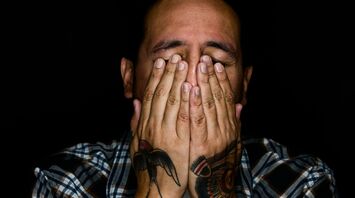Sick Passengers on Flights: Time for Airlines to Rethink Policies

The spread of illness on flights has long been a concern, but the issue has gained new urgency in the wake of the COVID-19 pandemic. A troubling number of passengers continue to fly while visibly sick, posing a risk to fellow travelers and flight crews. This problem persists partly due to airline policies and broader cultural attitudes that discourage staying home when unwell.
In one instance, a woman flying Southwest Airlines from Baltimore to Las Vegas refused to board after witnessing another passenger coughing uncontrollably. While the man took precautions like covering his mouth and coughing away from others, the incident highlights the heightened anxiety surrounding airborne illnesses.
Many airlines, such as American Airlines, have policies that penalize employees for taking sick days, even those guaranteed by their contracts. This creates an environment where both passengers and crew might feel pressured to fly while ill. These policies, combined with high change fees and non-refundable tickets, often leave sick passengers with no choice but to board their flights.
Passengers flying sick isn't a new phenomenon, but the pandemic has brought it into sharper focus. Historically, airline policies made it difficult to cancel or change flights without significant financial loss. Despite recent moves by some airlines to eliminate change fees, basic economy tickets often remain non-refundable and non-changeable, compelling sick passengers to fly.
Improving this situation requires a cultural shift in how sickness is perceived and handled. Encouraging the use of sick days and reducing the stigma around calling in sick could significantly decrease the transmission of illnesses in confined spaces like airplanes. Some suggest compensating sick days more generously to discourage people from working while unwell, thereby protecting public health.
Airlines could implement health screenings for both passengers and crew to mitigate the risk of spreading diseases. Enhanced cleaning protocols, adopted during the pandemic, should remain standard practice. While aircraft generally have good air filtration systems, areas like gate waiting zones and security checkpoints do not, necessitating additional precautions.
Before COVID-19, the CDC recommended avoiding travel with a fever over 100 degrees and other symptoms, but many ignored this advice. Post-pandemic, there's a clear need to enforce stricter guidelines and foster a travel culture that prioritizes health over convenience. This change could ensure a safer flying experience for everyone.



















